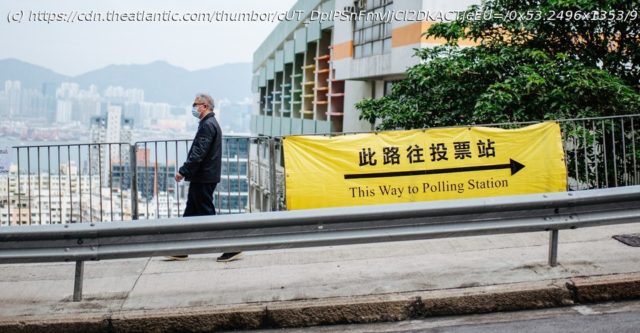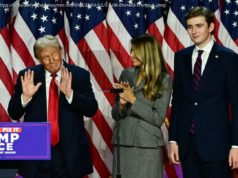By rigging the game, Beijing gets to cosplay democracy without having to worry about the unpredictable results of the real thing.
I n November 2019, Nixie Lam suffered the same fate as nearly all of her pro-Beijing compatriots running in Hong Kong’s local elections. The two-term district councillor was roundly defeated by a prodemocracy candidate whose campaign had been buoyed by months of sustained protests. A pro-Beijing “silent majority,” much talked about by supporters and pundits, proved to be nothing more than a fallacy, and with record turnout, prodemocracy candidates parlayed the demonstrations into historic gains, capturing majorities in 17 of Hong Kong’s 18 district councils. Although district councils have limited power, they are the only directly contested elections in the city and are therefore notable bellwethers for what Hong Kongers actually think. The results humiliated the Hong Kong government, Beijing, and its loyalists in the city. Still, Lam tried to downplay the trouncing she and her party members took. “You couldn’t win forever,” she told me recently. A couple of years after her defeat, Lam was tapped to run in Sunday’s legislative-council elections, the city’s mini-Parliament, and she accepted. When I met with her last week, she seemed confident in her chances at a political comeback on a bigger stage—and with good reason. After 2019’s near wipeout, the central government on the mainland didn’t just change the rules of Hong Kong’s political game. Like a petulant child tired of losing, Beijing tossed the entire thing into the garbage bin. With reengineered election rules, Hong Kong’s already limited democratic freedoms have been almost entirely stripped away. The number of overall seats in the city’s legislature was expanded to 90, but the number of directly elected seats was slashed to just 20. (Previously, half of the 70 seats were directly elected.) Other representatives are elected by functional constituencies, which are small, mostly commercial special-interest groups. Under a new policy of “patriots administering Hong Kong,” candidates were vetted by a panel headed by senior government officials and advised by the police. Not that there would have been many candidates to contest the positions even if the rules hadn’t changed; nearly every notable prodemocracy figure has been jailed, fled abroad, or retreated from public life after the passage of a draconian national-security law last year, another facet of a sweeping and unrelenting crackdown on Hong Kong’s liberties. What is left is “hegemonic authoritarianism,” Lee Morgenbesser, a senior politics lecturer at Griffith University, in Australia, told me. It’s a system, he said, that exists when “de facto opposition parties are banned, basic civil liberties and political rights are overtly violated, the rule of law is arbitrarily breached, and the government has monopolized access to media.” Crucially, this type of governance structure allows places like Hong Kong and other regimes, such as those in Laos and Vietnam, to keep up the veneer of democratic competition but with the preferred results all but guaranteed. “Ultimately, elections may be allowed to exist,” Morgenbesser told me, “but they cease to be an avenue for actual opposition parties to gain power.” This boded well for Lam and her fellow patriots. She ran to represent the newly formed “election-committee constituency,” a powerful body made up of 1,448 pro-Beijing loyalists who selected 40 seats of the legislature, the largest bloc. She won a seat with only 1,181 votes. None of the city’s major prodemocracy parties fielded any candidates. A handful of hopefuls attempted to pitch themselves as third-way moderates, and only one was elected. Turnout was historically low. Government officials touted this as part of an “improved” election system and asked residents to believe them when they insisted it was actually more representative than before. Rather than campaign among the general public, Lam shuttled between meetings with industry groups and tycoons and held Zoom calls with voters in mainland China. Standing out in a field of candidates whose beliefs are largely the same can be a challenge, so Lam wore a dusty-pink pantsuit for the duration of her weeks-long campaign. Cosplaying as a democratic politician on the campaign trail is apparently challenging.






